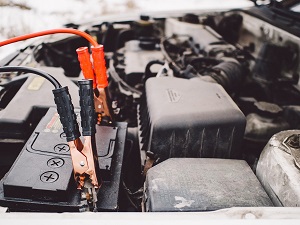How Long Can a Car Battery Last Without the Engine Running?
Factors that Affect Battery Life
The lifespan of a car battery without the engine running depends on several factors, including:
- Battery age and condition
- Battery capacity (measured in amp-hours or Ah)
- Electrical load (accessories and devices drawing power)
- Ambient temperature
Battery Capacity and Load
The battery’s capacity determines how much power it can store. A higher Ah rating indicates a larger capacity and longer potential lifespan. The electrical load refers to the amount of power being drawn by accessories, such as lights, radio, and GPS. A heavier load will drain the battery faster.
Battery Age and Condition
As a battery ages, its capacity decreases. Older batteries may not hold a charge as effectively, reducing their lifespan without the engine running. Battery condition also plays a role. Damaged or corroded batteries will drain more quickly.
Ambient Temperature
Extreme temperatures can affect battery performance. Cold temperatures slow down chemical reactions within the battery, reducing its capacity. High temperatures can accelerate battery degradation, leading to shorter lifespans.
Estimated Lifespan
Based on these factors, here is an estimated lifespan for a car battery without the engine running:
- New battery, light load, mild temperature: Up to 10 hours
- Older battery, moderate load, moderate temperature: Around 5-7 hours
- Old battery, heavy load, extreme temperature: As low as 1-2 hours
Tips for Extending Battery Life
To prolong the lifespan of your car battery without the engine running, consider these tips:
- Turn off all accessories and devices when the engine is off.
- Check and replace old or damaged batteries.
- Park in a shaded area or use a battery cover to protect from extreme temperatures.
- Disconnect the negative battery terminal if the car will be parked for an extended period.
- Consider using a trickle charger to maintain battery charge if the car is not driven regularly.
Conclusion
The lifespan of a car battery without the engine running varies depending on several factors. With a new battery, light electrical load, and mild temperatures, you can expect up to 10 hours of power. However, older batteries, heavy loads, and extreme temperatures can significantly reduce this lifespan. By following the tips provided, you can extend the life of your battery and avoid unexpected breakdowns.





